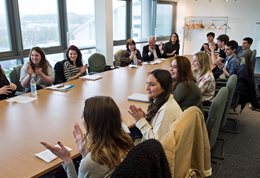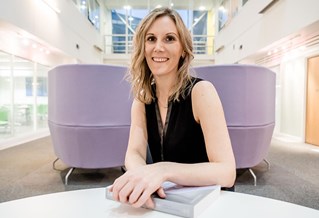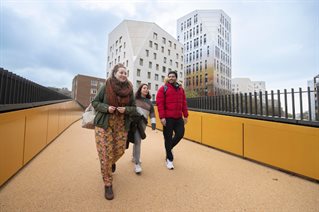
Open doors to interesting careers
By studying a language degree you have career options open to you including journalism, work as a linguist, teaching, lexicography, editing, proofreading and speech and language therapy.

Staff who bring the subject to life
You'll learn from academics passionate about the field, whose innovative research in language, linguistics, creative writing, literature and media reflects in your classroom experience.

Placement opportunities
On our language degrees you can gain professional experience in industries such as publishing, broadcasting, social media marketing, PR and the charity sector. Our students have been to organisations including Brighton Dome and Festival, Men's Health and Epoque Press.